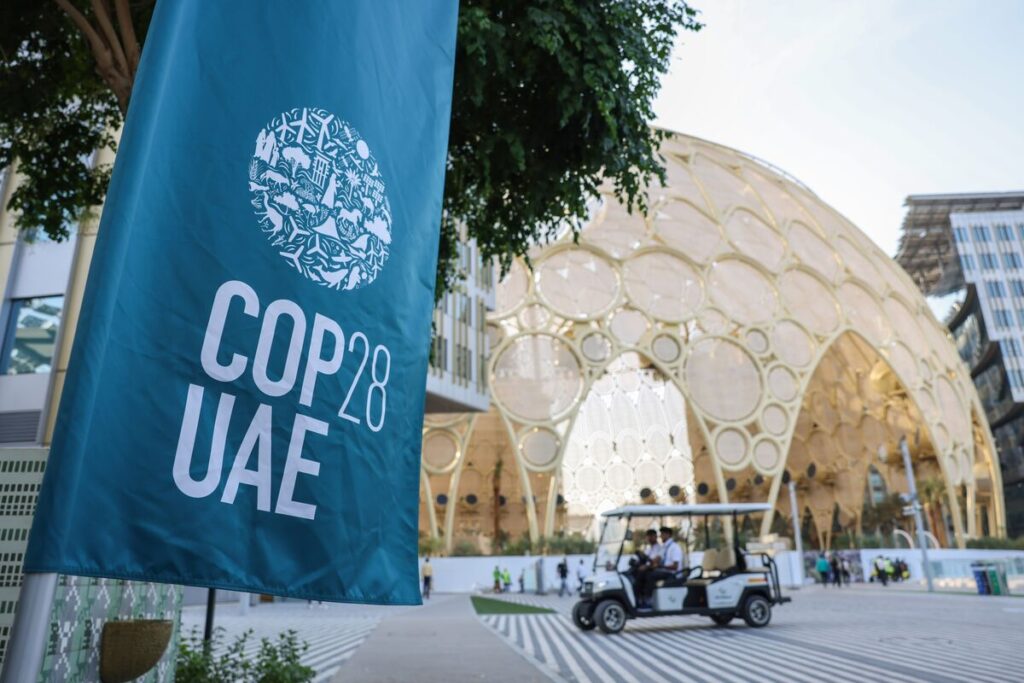How I See It: COP28 is Hard to Like

|
Listen to this story:
|
Seventy thousand people attended COP28 this year. The event included “responsible” superyachts, nightly light shows, and over 2000 oil and gas lobbyists. Many of the reports streaming out had the breathless quality of Taylor Swift concert reviews. Not to mention that the world’s foremost climate conference was hosted by United Arab Emirates (oil super-power) and presided over by the state head of an oil company.
For those not attending the COPs, there is a lot about them not to like. These events have become so large that countries compete to host them. Everyone flies in. The carbon footprint of the event itself is huge. And are they even making a difference?
Despite all of these understandable criticisms, I believe the annual COP events are an important piece of solving the climate crisis.
You could look at this through the numbers: “At the time of the Paris COP, the global warming expected by 2100 if policies did not change was more than 3°C above pre-industrial levels. If policies in place today are followed, central estimates put it around 2.5-2.9°C . . .”. This is not nearly enough given that scientists agree we must limit global warming to 1.5°C to avoid catastrophe. But it is an improvement, and it suggests that more is possible.
Beyond these numbers, the real value of the COPs is how they have pushed climate onto political and business agendas around the world and forged relationships among a group of politicians, business leaders, experts, and even activists who are capable of accelerating change.
RELATED ARTICLE: Tim Mohin – COP28: Beginning of the End of the Fossil Fuel Era?
Every year at COP:
- Countries commit to making substantial changes. They may not keep these commitments – but the commitments force political leaders to reckon with the climate crises beyond the next election.
- Business leaders commit to making substantial changes. This pushes the climate crisis on the executive agenda and forces action.
- Actors in the private sector forge relationships that will enable climate innovations for years to come.
Have you ever attended an in-person conference? If so, you know how this works. By the end of the conference, everyone agrees that meeting face-to-face made a huge difference. Why? Because we are human. We have been forging relationships in person for hundreds of thousands of years. It is in our DNA.
I wish that the carbon footprint of the COPs was lower, that there was less hype, and that they were held in more neutral locations. All of this detracts from the mission. But I do not doubt that the commitments and relationships forged at these events fuel climate action throughout the year.
This article is contributed by Christine Uri. Every week ESG News delivers smart commentary from ESG practitioners and experts to unpack issues of the day. Submit an article: [email protected]






